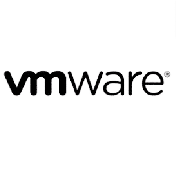Seminarinhalt
After you successfully complete this course, expect to be able to:
- Issues around organizational separation of IT development and IT operations, and how these can have a negative impact on both IT and the business
- How DevOps builds on existing concepts and approaches such as ITIL, Agile, and Kanban
- The role of continuous integration, continuous delivery, and continuous deployment in DevOps
- Organizational issues relating to DevOps and understanding of options for DevOps organizational design
- The role that tools play in DevOps
- Possible approaches to get started on a DevOps journey
Programm
- Describe thet current business context
- Recognize IT challenges
- Define the origins of DevOps
- Understand the definition of DevOps
- Articulate the business reasons for using DevOps
- Misconceptions of DevOps
DevOps Fundamentals
- Value stream and value stream mapping
- The three ways
- Deployment pipeline
- Version control
- Configuration management
DevOps Techniques
- Sprint events
- User stories
- Product backlog
- Minimum Viable Product
- Microservices
- Deployment methods
- Definition of done
- Kanban
- Improvement techniques
DevOps Practical Application
- Applicability of DevOps
- Potential issues
- Multi-modal IT
- ITIL 4 and DevOps
- DevOps journey
Zielgruppen
- Senior IT management, IT development staff, IT operations staff, IT process owners, business managers, business process owners
- Individuals who require an understanding of DevOps and how it can contribute to the success of IT within an organization
- IT professionals who are working in an organization that has adopted DevOps and need to be informed about DevOps so that they can operate effectively within the organization
Vorkenntnisse
- There are no specific prerequisites for this training, but knowledge and experience of how an IT organization works would be helpful.
- Those attending this course could benefit from purchasing and reading the following book: DevOps - A Business Perspective by Oleg Skrynnik



